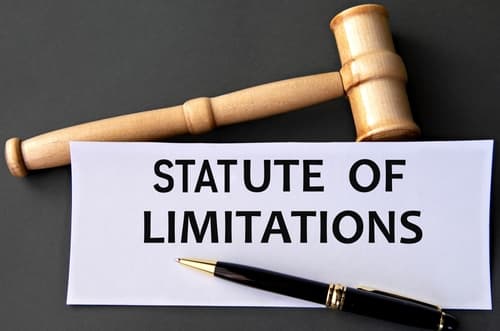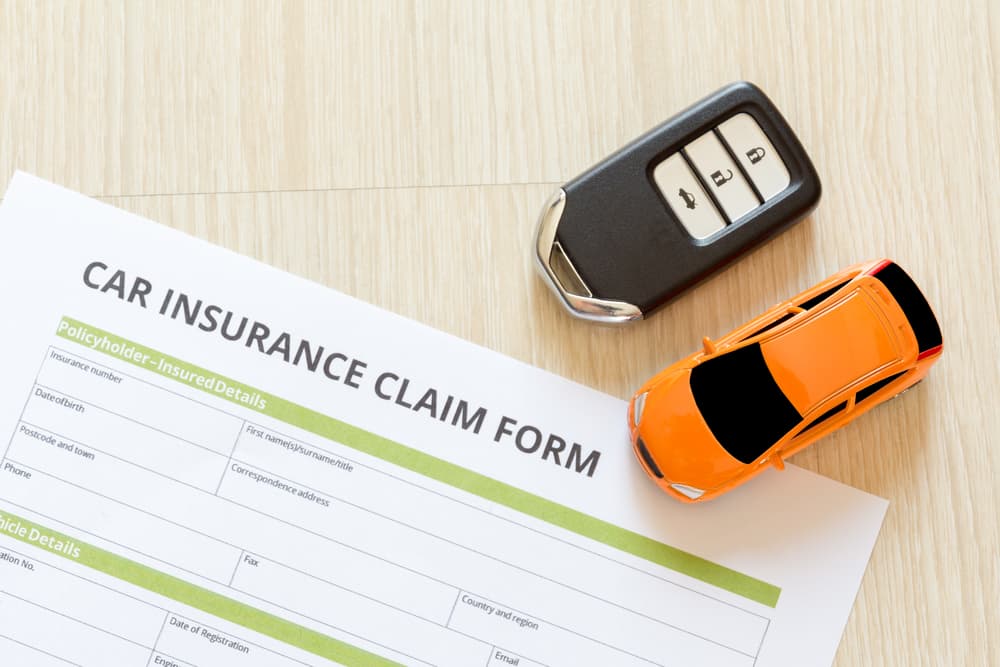Understanding the statute of limitations in a car accident claim is crucial for anyone seeking compensation for their injuries and damages. Hiring a car accident attorney within the specified timeframe can protect your rights and remedies after a car accident.
The following explains the statute of limitations, its importance, and how it can affect your case. Never wait to consult a car accident lawyer to ensure you meet all deadlines and have the best opportunity for obtaining the money you deserve.
Schedule a Free Initial Consultation Today!
What is the Statute of Limitations?
The statute of limitations dictates the time frame in which you must file a lawsuit after a car accident. It is an official legal deadline, setting the maximum duration for initiating legal proceedings against the at-fault party. This time limit varies depending on the jurisdiction and the nature of the claim.
The statute of limitations in a car accident claim is significant. It provides a clear deadline for bringing a claim in civil court arising from car accident injuries. By imposing a deadline for filing a lawsuit, the statute of limitations helps with efficiency in the legal system and prevents unnecessary delays in seeking justice.
Another legal basis for the statute of limitations in a car accident claim is that evidence and witness recollection may deteriorate over time, making it challenging to pursue a case effectively after a certain period. Therefore, the statute of limitations balances the interests of both parties involved in a legal dispute.
The Importance of Knowing the Statute of Limitations

Understanding the statute of limitations in a car accident claim is necessary, as failure to comply with this legal deadline can have significant consequences for your ability to seek compensation and pursue justice. You must know the statute of limitations for several reasons when you're involved in a car accident.
Timeliness
First and foremost, it ensures the timely pursuit of legal action. By understanding the limitations period applicable to your case, you will often take swifter action to consult a car accident attorney to begin building your claim against the at-fault party.
Starting your case promptly is beneficial for preserving crucial evidence, securing witness testimony, and building a strong case to support your claim.
Protecting Your Rights
Knowing the statute of limitations also helps you avoid potential pitfalls and consequences of missing the deadline. If you fail to file a lawsuit within the prescribed time frame, the opposing party may successfully seek to dismiss your case on procedural grounds.
This strategy can result in the court dismissing your claim and denying your right to seek compensation. Therefore, understanding the statute of limitations and acting within the specified time frame effectively protects your legal rights and remedies after a car accident.
How Does the Statute of Limitations Work in a Car Accident Claim?
Statutes of limitations are set out in state law. Each state can determine its own deadlines for filing different types of legal cases in civil and criminal court, and every state has a statute of limitations for personal injury lawsuits. These time periods range from one to six years across the United States.
The clock typically begins running on the date of the car accident or the date that the injury or damage occurred. From this starting point, you must count forward the prescribed years or months specified by the relevant statute.
For example, suppose the statute of limitations in your state specifies a two-year limitation period for personal injury claims. In that case, you have two years from the accident date to file a lawsuit seeking compensation for your injuries.
Examples of Car Accident Statutes of Limitations in Different States
The statute of limitations for car accident claims varies from state to state.
Here are some examples of car accident statutes of limitations in different states:
- Connecticut: In Connecticut, the statute of limitations for filing a personal injury claim arising from a car accident is generally two years from the date of the accident.
- New York: In New York, the statute of limitations for filing a personal injury claim resulting from a car accident is typically three years from the date of the accident.
- Maine: In Maine, the statute of limitations for personal injury claims arising from car accidents is generally six years from the date of the accident.
- New Jersey: In New Jersey, the statute of limitations for filing a personal injury claim stemming from a car accident is typically two years from the date of the accident.
- Tennessee: In Tennessee, the statute of limitations for filing a personal injury claim resulting from a car accident is generally one year from the date of the accident.
Factors Influencing the Statute of Limitations

Several factors influence the statute of limitations in a car accident claim, shaping the time frame that you can pursue legal action for your injuries and damages.
The Type of Claim
Another factor that influences the statute of limitations is the type of claim you're pursuing. Different claims, such as personal injury or property damage, may be subject to varying limitation periods.
Some states have different statutes of limitations for wrongful death claims than for personal injury claims. Other states have one deadline for car accident claims and another for all other types of personal injury cases.
Type of Defendant
Sometimes, a car accident claim will be against a government agency or another public entity. In such cases, state law might require you to act much faster than in claims against private parties.
You might need to file a notice of claim in as few as 180 days after the accident. If you believe your case involves the government, always speak with a car accident lawyer as soon as possible so you do not miss any necessary deadlines.
Exceptions and Extensions to the Statute of Limitations
Exceptions to the statute of limitations play a critical role in car accident claims, providing flexibility in certain circumstances. These exceptions do not give you unlimited time to file your lawsuit, but they toll, or pause, the statute of limitations before it begins to run again.
Here's a brief look at a few possible exceptions.
The Discovery Rule
One important exception is the discovery rule, which delays the start of the clock until the date you discovered or should have discovered your injuries. This rule primarily applies in cases involving latent or hidden injuries that may not become manifest until later, such as internal injuries, concussion, or soft tissue injuries like whiplash.
Minors and the Mentally Incapacitated
Courts typically afford minors and those with mental disabilities special protections under the law, allowing for more extended limitation periods to accommodate their circumstances.
In car accident claims involving minors or individuals who the state deems legally incapacitated, the court may extend the limitation period until they reach the age of majority or regain competency.
Other Exceptions
In addition, other exceptions to the statute of limitations may exist based on jurisdictional laws and specific circumstances surrounding the car accident. These exceptions may vary depending on the laws of the state where the accident occurred and may include factors such as fraudulent concealment by the defendant or acts of God that prevent timely legal action.
Some states have different exceptions than others. In Connecticut, for instance, if the at-fault party leaves the state, it freezes the clock up to seven years.
Exceptions to the statute of limitations ensure fairness and accommodate unique circumstances in car accident claims. But you should never assume an exception applies to your situation.
Instead, have a car accident lawyer review your circumstances and advise whether your statute of limitations might be tolled or not.
The Consequences of Missing the Statute of Limitations
As mentioned earlier, missing the statute of limitations deadline in a car accident claim can have significant consequences. These consequences can affect your ability to seek justice and compensation for injuries and damages.
Losing Your Right to Seek Compensation
One of the most severe consequences is the loss of your legal rights and remedies.
Once the limitation period expires, you may no longer file a lawsuit and pursue legal action against the at-fault party. This loss of legal rights prevents you from holding the responsible party accountable for their actions and seeking justice for the harm you've suffered.
Missing the statute of limitations deadline can also result in losing your ability to pursue compensation for your injuries and damages outside of court. While the statute of limitations only applies to lawsuits, it can greatly affect car accident insurance claims.
If you don't file a lawsuit within the prescribed time frame, you lose the leverage of litigation, which is a strong bargaining chip in negotiations. Auto insurance companies certainly know when the statute of limitations is approaching or expires, and they use this to their advantage.
When you lose the option of filing a lawsuit, your only recourse is to accept whatever the insurer offers, so they will often make as low an offer as possible.
Never risk losing your right to file a lawsuit and risking the full compensation you deserve. Consult a car accident lawyer in your state as soon as possible so you never miss any deadlines.
Practical Steps to Take Within the Statute of Limitations Period
Take practical steps to protect your legal rights and pursue compensation within the statute of limitations:
- If you haven't already done so, seek medical attention promptly for any injuries sustained in the accident. Documenting your injuries and receiving appropriate medical treatment ensures your well-being and establishes a record of your injuries, which is crucial for your car accident claim.
- Hire a car accident attorney so they can gather evidence and information related to the car accident to support your claim. This may include obtaining copies of the police report, taking photographs of the accident scene and any property damage, and collecting contact information from witnesses. The more evidence you gather, the stronger your case will be when seeking compensation for your injuries and damages.
- An experienced attorney can provide valuable guidance and advocacy throughout the claims process, ensuring you understand your legal rights and obligations. They can also assess the strength of your case, negotiate with insurance companies on your behalf, and represent you in court if necessary.
By taking these practical steps well within the statute of limitations period, you can protect your legal rights and maximize your chances of obtaining the fair compensation you deserve.
Other Reasons to Consult a Car Accident Lawyer Right Away Besides the Statute of Limitations
Preserving Evidence

Preserving evidence is critical in any car accident case. The longer you wait, the more likely it is that important evidence will be lost or compromised.
A car accident lawyer can immediately start to preserve important evidence such as photographs of the accident scene, damage to the vehicles involved, dashcam footage, and more. They can also help obtain witness statements and gather other supporting evidence before it becomes difficult to track down.
Knowing Whether You Have a Claim
You may be unsure whether you have a valid claim after a car accident, especially if you believe the accident was partially your fault. This can be frustrating and financially stressful.
A car accident lawyer can assess the facts of your case and help you understand your legal options, relieving this stress.
Peace of Mind
Consulting a car accident lawyer right away can give you peace of mind knowing that you have an advocate on your side who will handle all the legal aspects of your case. They can communicate with insurance companies, negotiate settlements, and even represent you in court if necessary. This allows you to focus on your recovery, knowing your case is in the hands of a legal professional.
Seek your free case evaluation with a personal injury attorney today.
Schedule a Free Initial Consultation Today!
